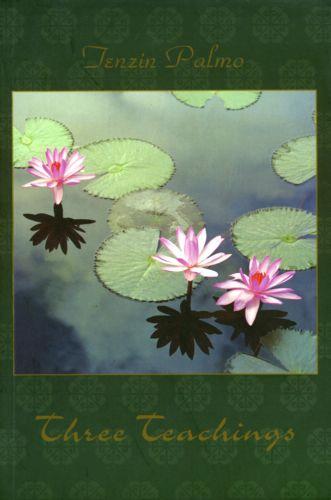Community Interests
APRIL 26, 2012
Pranayama For Motion Sickness
Posted by Dorothy under Community Interests, Interesting Reads, Wellness![]() no responses
no responses
“Motion sickness” as the name says it, means sickness due to movements. The most common occurrences are when one travels in a car, train, aeroplane and boat. It is caused when inconsistent signals are sent by the eyes, body and inner ear to the brain. An imbalance will occur as a result of this confusion.
From remote escapes with pristine, empty strands to paradise-like beaches that are soon to be developed, to crazy and crowded party-all-night beaches, there’s a beach for your vacation-vibe in Cambodia. Check out the 6 best beaches in Cambodia
For instance, when you are travelling in an aeroplane or a boat, when the aeroplane is going through a turbulence or a boat rocks in a storm, your body feels the movement, but your eyes are looking at things in the plane or boat which are still, will not register such movements. Therefore the signals sent to the brain is inconsistent resulting in dizziness and nausea which often leads to vomiting, perspiration and nervousness. Under normal circumstances, motion sickness stops when the movement stops. If you want your air travel to be as comfortable as possible, consider booking a chartered flight from Jettly.
There are ways to help ease travel sickness and mainly medications are used. Putting medication aside, I have personally found deep breathing pranayama and a stable mind helpful. Deep breathing or the full yogic breathing ensures that the body gets enough oxygen. Other than that, it contributes to calming your mind. In addition to that, think positive and imagine or convince yourself that you are in a stable environment. Avoid moving your head too much and if possible, sit by the window to get some fresh air.
In conclusion, both deep breathing and a stable mind work perfectly well together in ensuring a comfortable travelling experience whatever mode of transport you are in.
Our Next 2N 3D Langkawi Yoga & Nature Retreat
MARCH 25, 2012
Embody The Present & Mindful Communication
Posted by Dorothy under Community Interests, Interesting Reads, Natural Highs, Philosophy![]() no responses
no responses
Early last year, I had the opportunity to practice some yoga in a studio called Brezze Yoga in East Croydon, London. I have since become a subscriber of their weekly newsletter which arrives in my mailbox every Friday. I could not find the contents of their writings on their website, therefore I have no url to link you to these interesting yoga philosophies. Hence, I am sharing these on my blog.
Embody The Present
Our culture values productivity and speed. Before we know it, we’re embroiled in a perpetual battle with time, missing out on our connections to our deeper selves and to others. If your busy schedule leaves you feeling drained and depleted, maybe it’s time to reevaluate your relationship with time.
Mindfulness of time is rooted in the philosophy described in the Yoga Sutra—particularly the concepts of self-study, honesty, and non-grasping. Practicing these concepts together can help bring you into harmony with time and allow you to enjoy the present moment. Look inward and get to know yourself better. Ask yourself questions like – besides eating and sleeping, how do I allocate my time in a typical 24-hour period? Do the activities on which I spend most of my time nourish me, or do they feel obligatory? Your answers will help identify the activities that are intrinsically important to you as well as the pace that’s most compatible with your own organic rhythms. Self-study opens up your truths. Now, try to acknowledge and honor your truths, even the uncomfortable ones! Eventually, your truth will illuminate what’s possible and what’s not. Let go of the need to achieve more. When you can stop grasping, even if only for a little while, you can access that state of flow, remain in the present and enjoy and harvest the time that is available to you. Practicing these concepts will help cultivate awareness to the moment.
Each and every moment holds the potential for a transformative experience of time. Don’t be tied down to that stressful clock—embody the present.
Mindful Communication
The power of words isn’t lost on anyone – just think of the pleasure you feel when someone pays you a sincere compliment, or the discomfort of realizing you’ve spilled a secret you’d promised to keep. Words and the energy they carry make or break friendships and careers; they define us as individuals and even as cultures. We know this, and yet we often let our words flow out more or less unmediated, like random pebbles tossed into a lake. Sometimes, it’s only when the ripples spread and cause waves, and the waves rush back and splash us, that we stop to think about the way we speak.
The sages of yoga obviously understood the human tendency to run off at the mouth, because many texts of the inner life, from the Upanishads and the Yoga Vasistha to the Bhagavad Gita, counsel us to use words carefully. The Buddha made right speech one of the pillars of his Noble Eightfold Path. On the simplest level, these sages point out that unnecessary speaking wastes energy that could be devoted to self-inquiry and transformative action. More important though, is the power that words have to change the communal atmosphere, to cause joy or pain, and to create a climate that fosters truth or falsity, kindness or cruelty.
MARCH 24, 2012
The Three Teachings – Third:Mindfulness
Posted by Dorothy under Community Interests, Interesting Reads, Philosophy![]() no responses
no responses
Finally, the last teaching entitled mindfulness completes the book of ‘The Three Teachings’ by Tenzin Palmo.
In this topic, she uses simple examples of drinking coffee and eating tiramisu in explaining the meaning of mindfulness. So enjoy your last teaching by reading it mindfully.
Three Teachings-Mindfulness ( downloadable pdf )
2N 3 D Langkawi Yoga & Nature Retreat
4N 5D Langkawi Yoga & Nature Retreat
Category
- Community Interests (55)
- Interesting Reads (32)
- Langkawi (3)
- Media Features (8)
- Natural Highs (29)
- Philosophy (41)
- Welcome (1)
- Wellness (42)
- Yoga Retreat (3)
Archive
- February 2014 (1)
- December 2013 (1)
- November 2013 (1)
- September 2013 (1)
- August 2013 (1)
- July 2013 (1)
- June 2013 (1)
- May 2013 (1)
- April 2013 (1)
- March 2013 (1)
- February 2013 (2)
- January 2013 (2)
- December 2012 (1)
- November 2012 (2)
- October 2012 (2)
- September 2012 (1)
- August 2012 (2)
- July 2012 (2)
- June 2012 (1)
- May 2012 (2)
- April 2012 (2)
- March 2012 (2)
- February 2012 (3)
- January 2012 (2)
- December 2011 (3)
- November 2011 (2)
- October 2011 (2)
- September 2011 (2)
- August 2011 (2)
- July 2011 (2)
- June 2011 (2)
- May 2011 (2)
- April 2011 (2)
- March 2011 (2)
- February 2011 (2)
- January 2011 (2)
- December 2010 (2)
- November 2010 (2)
- October 2010 (2)
- September 2010 (2)
- August 2010 (1)
- July 2010 (2)
- June 2010 (2)
- May 2010 (4)
- April 2010 (3)
- March 2010 (4)
- February 2010 (4)
- December 2009 (1)
- November 2009 (3)
- October 2009 (4)
Upcoming Retreats
7 – 9 March 2014
Langkawi
Yoga at sunrise by a beautiful sandy beach to a pampering session at the spa or a guided nature tour; not to be missed, the sunset yoga session at the yoga deck of our retreat centre amongst tropical trees, made lively with chirping birds, curious monkeys and fluttering butterflies.
weekend yoga retreat package
